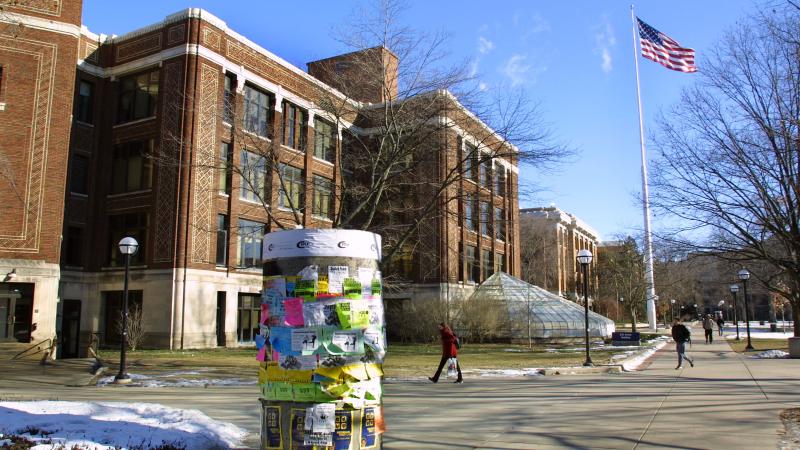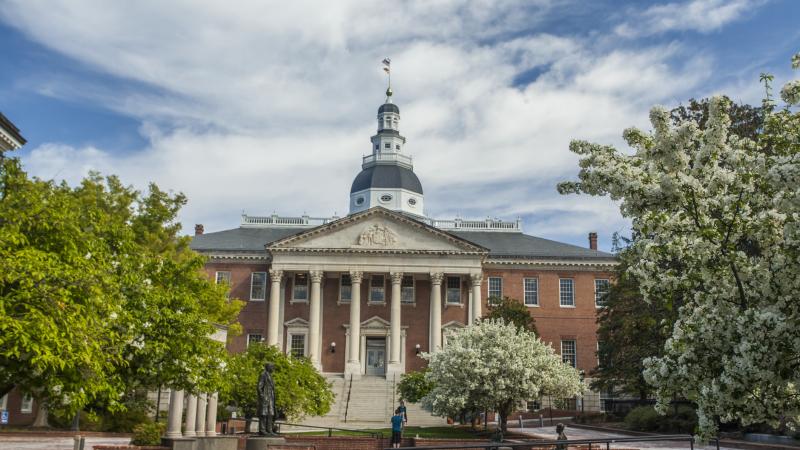Justices puzzled by Colorado's argument for forcing Christian designer to make gay wedding websites
303 Creative's Lorie Smith can denounce same-sex marriage on websites she creates for gay weddings, Colorado solicitor general argues before SCOTUS. Justices offer hypotheticals about black mall Santas and KKK-clad kids, unfaithful Jews, gay-only wedding announcements.
Web designers in Colorado can express their animus toward same-sex marriage in the wedding sites they design for gay couples. They just can't refuse to design wedding websites for gay couples if they design for heterosexuals.
This argument by Colorado Solicitor General Eric Olson perplexed some Supreme Court justices hearing a First Amendment preenforcement challenge Monday to the state's public accommodations law, the subject of a previous SCOTUS decision on creative expression and same-sex marriage.
Justices probed the parties by floating far-out hypotheticals such as white-only "It's a Wonderful Life" recreations and a black mall Santa's objection to posing with Ku Klux Klan-clad children, but also whether a designer could refuse to give a gay couple the same site already made for a straight couple.
Like Masterpiece Cakeshop's Jack Phillips before her, 303 Creative's Lorie Smith objects to participation in gay nuptials based on her Christian beliefs.
Colorado courts ordered Phillips to make custom same-sex wedding cakes so long as he designed cakes for heterosexual weddings. He stopped making wedding cakes altogether.
While SCOTUS reversed the Colorado Civil Rights Commission's findings against Phillips on account of its hostility to his religious beliefs, it didn't rule on the Colorado Anti-Discrimination Act itself. Phillips is now appealing another Colorado court loss for refusing to design a gender-transition cake.
The Denver-based 10th U.S. Circuit Court of Appeals ruled the state could force Smith to design websites for gay nuptials despite recognizing that the law features a "pro-LGBT gerrymander" and treats secular speech favorably. (The Colorado commission dismissed a complaint against a bakery for refusing to make a cake with "Homosexuality is a detestable sin" written on it.)
"In this toxic legal climate, nearly anyone involved with religious ceremonies faces realistic threats of prosecution for speaking consistently with their religious faith under laws that impose jail time and up to $100,000 fines," according to Smith's successful petition for SCOTUS review by the Alliance Defending Freedom, which is also representing Phillips.
SCOTUS only agreed to consider whether "applying a public-accommodation law to compel an artist to speak or stay silent violates the Free Speech Clause of the First Amendment," declining ADF's request to revisit its 1990 ruling restricting free exercise of religion under "generally applicable" laws.
Smith is asking for a "license to discriminate" that could be used to deny architectural, photographic and other services to disabled people as well as sexual and racial minorities, Colorado's Olson argued. It would be like a Christmas-themed store blocking Jews.
He conceded to Justice Clarence Thomas "the historical record is sparse" in applying public accommodations laws to speech. "The fact is this is not a hotel," Thomas said.
Nothing is stopping designers from putting the content they want on otherwise customized websites — even a denunciation of same-sex marriage itself — because that wouldn't make "status-based distinctions" by customer, Olson said.
Smith could also refuse to put a quote on the cake from the Supreme Court's Obergefell decision that legalized same-sex marriage, he told Justice Elena Kagan.
"It doesn't make any difference in the real world then," Justice Samuel Alito responded. The solicitor general is making a "tiny sliver of an argument" that seems to also say Smith could legally discriminate by "reserving a degree of selectivity" in what she offers, Alito said.
A Jewish photographer probably can't refuse service to an unmarried Jewish person who wants a profile photo for Jewish dating service JDate or infidelity website Ashley Madison, Olson confirmed to Alito. But he said the law doesn't protect Alito's hypothetical KKK outfits, so the black mall Santa is safe.
Justice Neil Gorsuch, who previously served on the 10th Circuit that upheld the state's authority to compel speech from Smith, had perhaps the most heated exchange with Olson.
The solicitor general seems to argue that freelancers could be compelled to write speeches for a religious entity they revile, such as the Church of Scientology, Gorsuch said.
"You can choose the contours of the product that you sell," Olson responded.
But that's what Smith is doing, selling her services without customer distinctions as long as it's not a message she opposes, the justice said. He accused Colorado of putting Phillips through a "reeducation camp program," which Olson countered was just a "process to make sure [Phillips] was familiar" with state law.
Justice Brett Kavanaugh noted that UCLA First Amendment scholar Eugene Volokh filed a brief supporting the gay couple in Masterpiece as well as Smith in 303 Creative, saying the latter was compelled speech. He asked how Smith was different from a publisher that publishes pro-choice but not pro-life books.
Justice Amy Coney Barrett stumped Olson by asking whether a newspaper could celebrate "Gay Pride Month" throughout June by only running announcements for gay weddings. In another ACB hypothetical — a gay rights group that published only gay wedding announcements, for a fee — Olson conceded that would likely violate state law.
ADF's Kristin Waggoner emphasized Colorado's law could force Democrats to write press releases for Republicans and black sculptors to make crosses for neo-Nazis. "It's not just about a sale," she said.
When Justice Thomas hinted the high court could duck the issue altogether because Smith hasn't been punished, Waggoner pointed to Colorado's "aggressive enforcement history" and six years of chilling effects on Smith.
Waggoner sparred with liberal justices over whether offering a "plug and play" wedding website that is already substantially complete, and need only be filled in by the couple, changes the First Amendment analysis.
Justice Kagan doubted "there's ideology just in the fact" that a gay couple wants a website. Replacing male and female names with those in a same-sex union is "switching out the concept and the message" attached to the designer, Waggoner told Justice Jackson. "The same words can convey different meanings."
Justice Sonia Sotomayor questioned why recipients of a wedding invitation would ascribe the purported message to the designer. She reviewed a "funny dating story" from the website exhibits in the case file. "It's their story, not your story" as designer, Sotomayor said.
Smith would also not create a website for a couple that divorced their spouses and remarried each other, Waggoner told Justice Barrett. The union has to align with "what Scripture holds on marriage" for her.
Justice Gorsuch said he was "a little confused" because Colorado has alternately claimed the sought message is and isn't the baker's, alluding to the bakery that turned down the "Homosexuality is a sin" request.
Siding with Smith could mean approving a photographer's hypothetical white-only "Scenes with Santa" custom package, intended to "capture the feelings of a certain era," while offering all other services to everyone, Justice Jackson said. "'I want to give gay couples a limited menu'" is essentially the argument, Justice Sotomayor said, invoking segregated lunch counters.
Waggoner disputed the Santa analogy and gave her own. "The objection itself is not contained in that photograph" with Santa, so it's not speech, she said. "The Pulitzer Prize doesn't go to the customer or the subject" but rather the photographer who snapped the photo.
















